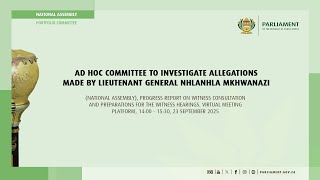Introduction
Ad hoc committees are temporary groups created to address specific issues or tasks that arise within organizations, governmental bodies, or institutions. Their significance lies in their capacity to provide focused attention to unique challenges, allowing for flexible and efficient problem-solving. As the global landscape continuously evolves, the reliance on ad hoc committees is increasingly pertinent, especially in addressing urgent matters such as public health, economic crises, and policy reforms.
What is an Ad Hoc Committee?
Typically formed in reaction to a specific situation, ad hoc committees are responsible for gathering information, conducting research, and delivering recommendations to a larger governing body. By being temporary, they can quickly mobilize resources and expertise tailored to the unique parameters of the issue at hand. For instance, during the COVID-19 pandemic, numerous ad hoc committees were set up worldwide to address public health responses, vaccination strategies, and economic recovery.
Recent Examples of Ad Hoc Committees
In South Africa, the ad hoc committee formed by the Parliament to investigate the country’s Covid-19 procurement procedures serves as a prime example of the effectiveness of these groups. Established in early 2021, the committee was tasked with examining irregularities in the procurement of personal protective equipment (PPE) and other resources. The committee’s findings have had far-reaching implications for governance and accountability, highlighting the necessity of transparency in financial dealings.
Similarly, local councils often establish ad hoc committees to tackle pressing community issues, ranging from land use disputes to environmental concerns. These committees frequently engage with community stakeholders, thus ensuring that diverse perspectives are included in the decision-making process.
Conclusion
The usage of ad hoc committees is increasingly relevant in navigating the complexities of modern governance. Their ability to swiftly respond to specific challenges allows for enhanced focus and dedication to pressing issues, potentially leading to more informed and effective decision-making. With ongoing developments in government, public health, and community engagement, the role of ad hoc committees will likely continue to evolve, driving critical change in governance and public policy. Ultimately, understanding the functioning and purpose of these committees empowers citizens to engage more meaningfully in the democratic process, leading to improved governance outcomes.


